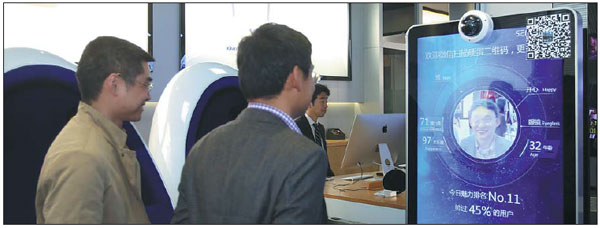Govt advised to heed market forces
The manufacturing industry should follow market rules to achieve long-term success in the country's effort to transform from "Made in China" to "Made by China", economists and industry insiders said, while suggesting the government "delegate" more to businesses.
The proposed upgrade of the manufacturing industry is taking center stage in the transformation of China's national economy to grow in a better quality manner.
Since Premier Li Keqiang initiated the "Made in China 2025" strategy, which, among other goals aims to achieve the same volume of production in manufacturing with that of Germany and Japan by 2035, China has embarked on a journey of Internet-driven manufacturing featuring smart and innovative technology. Attendants at the China Insights Forum, co-organized by China Daily and the country's leading Internet of Things supply chain platform IngDan in Shenzhen on Friday, see this strategy as a critical update of the Chinese industrial network, but they also see bumpy roads ahead.
Denis Depoux, Asia deputy president of Roland Berger, a Munich-based consulting firm, said he sees valuable implications in Europe's "Industry 4.0" initiative for China's transformation.
Because of its starting position and competitive landscape, China is more suitable for a hardware-driven scenario than a software scenario in shaping industrial production transformation, Depoux said at the forum. The former relies on investment in machinery and equipment, whereas the latter favors software and services driven by the need for greater integration.
Both Depoux and Zhang Jing'an, a former member of the Leading Party Group of the Ministry of Science and Technology, said one of the most important challenges facing China's manufacturing revolution is to deal with inconsistencies between businesses and the government.
Zhang urged the government to delegate "the largest power" to the market and businesses.
The greatest difficulty in achieving China's manufacturing transformation is to interrupt government interference in the market, said Professor Wang Zhile of the Chinese Academy of International Trade & Economic Cooperation, under the Ministry of Commerce.
The overcapacity of China's manufacturing is due to long-standing improper industry policies from the government, Wang said.
He said the operating system of the government works differently from the economic system. The former emphasizes policy achievements, whereas the later requires financial benefits. "Government-oriented enterprises have caused corruption and falsification, which will destroy the businesses at their core," he said. In terms of investment, Depoux suggested the government should provide more support to high-tech education, processes that integrate industry networks, collaboration with the supply chain and, most importantly, the end market.
Depoux urged Chinese companies to adopt a market-oriented mindset. "This (Industry 4.0) is not only about modernization, but simply to make China's manufacturing fit for higher quality, higher efficiency, more connection with the end-user market," he said.
IngDan, which in Chinese is a play on the words for hardware and egg, links innovative makers and smart hardware developers from across the world to China's manufacturing industry and supply chain, mainly clustered in the Pearl River Delta region.
IngDan is a subsidiary of Cogobuy Group, a Hong Kong-listed company founded by Forbes' global billionaire Jeffrey Kang in 2011 in Shenzhen, which operates China's largest manufacturing supply-chain platform.
sylvia@chinadailyhk.com
|
Visitors observe a display at the China Insights Forum held in Shenzhen on March 18.Zheng Erqi / China Daily |
(China Daily 03/22/2016 page15)















